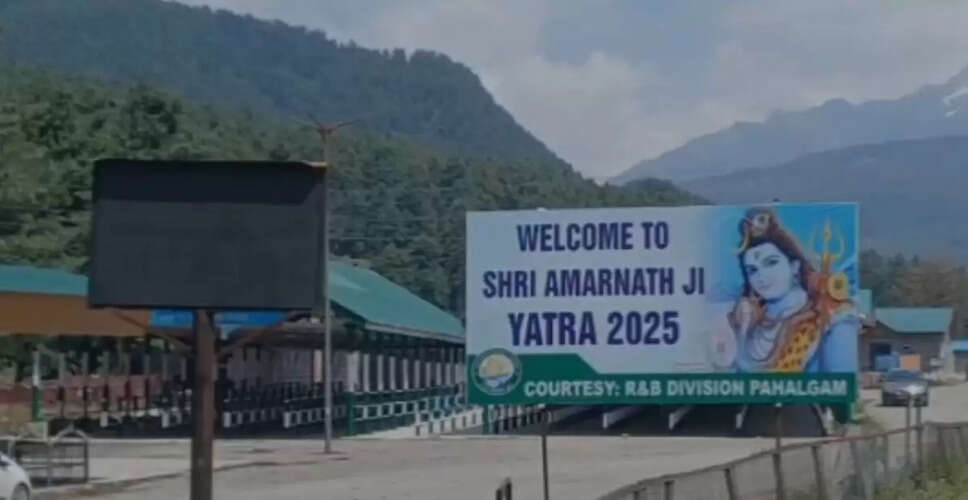Amarnath Yatra 2023: Helicopter Services Suspended Amid Security Concerns

Security Measures for Amarnath Yatra
In response to the recent attack in Pahalgam, helicopter services for this year's Amarnath Yatra have been halted for security reasons. Union Home Secretary Govind Mohan visited Srinagar on Tuesday to supervise the security arrangements for the pilgrimage, which is scheduled to begin on July 3. To bolster safety during the Yatra, the Jammu and Kashmir government has designated the routes to Amarnath as a ‘No Flying Zone’ from July 1 to August 10.
This marks the first instance where pilgrims will not have access to helicopter services to the Holy Cave along both the Pahalgam and Baltal routes since these services were introduced. The Jammu and Kashmir Home Department, under Lieutenant Governor Manoj Sinha's directives, has prohibited all types of aerial vehicles, including drones and balloons. However, exceptions will be made for medical emergencies, disaster management, and security surveillance, with specific Standard Operating Procedures (SOPs) in place.
As part of the preparations, Union Home Secretary Mohan is leading a review meeting at the Jammu and Kashmir Police headquarters in Srinagar, involving key officials such as JK Chief Secretary Atal Dulloo, DGP Nalin Prabhat, and senior representatives from various security agencies. The meeting's objective is to evaluate the current security situation in Jammu and Kashmir and finalize logistical arrangements for a safe and smooth Yatra.
This year's pilgrimage will span 52 days, concluding on August 9, with devotees making their way to the sacred cave shrine situated at an altitude of 3,888 meters. Pilgrims can opt for either the traditional Pahalgam route, which typically takes two to three days, or the shorter Baltal route, which allows for same-day return after darshan.
In light of the recent security threats following the Pahalgam attack, authorities are establishing a comprehensive multi-layered security framework that includes the Army, Central Armed Police Forces (CAPFs), and JK Police. Key measures will feature a Face Recognition System (FRS), RFID tracking for pilgrims, real-time weather updates, emergency evacuation plans, and dedicated health camps to ensure the safety and health of all participants.
